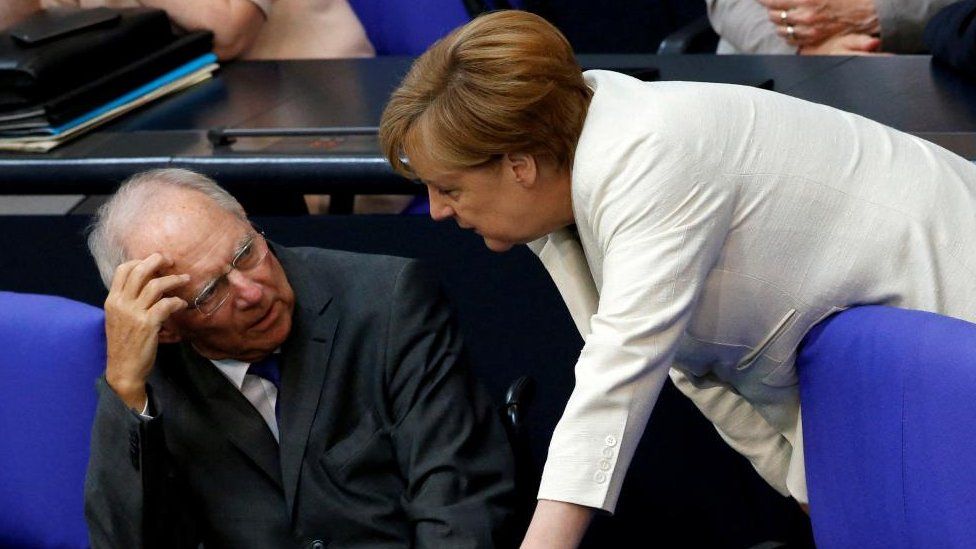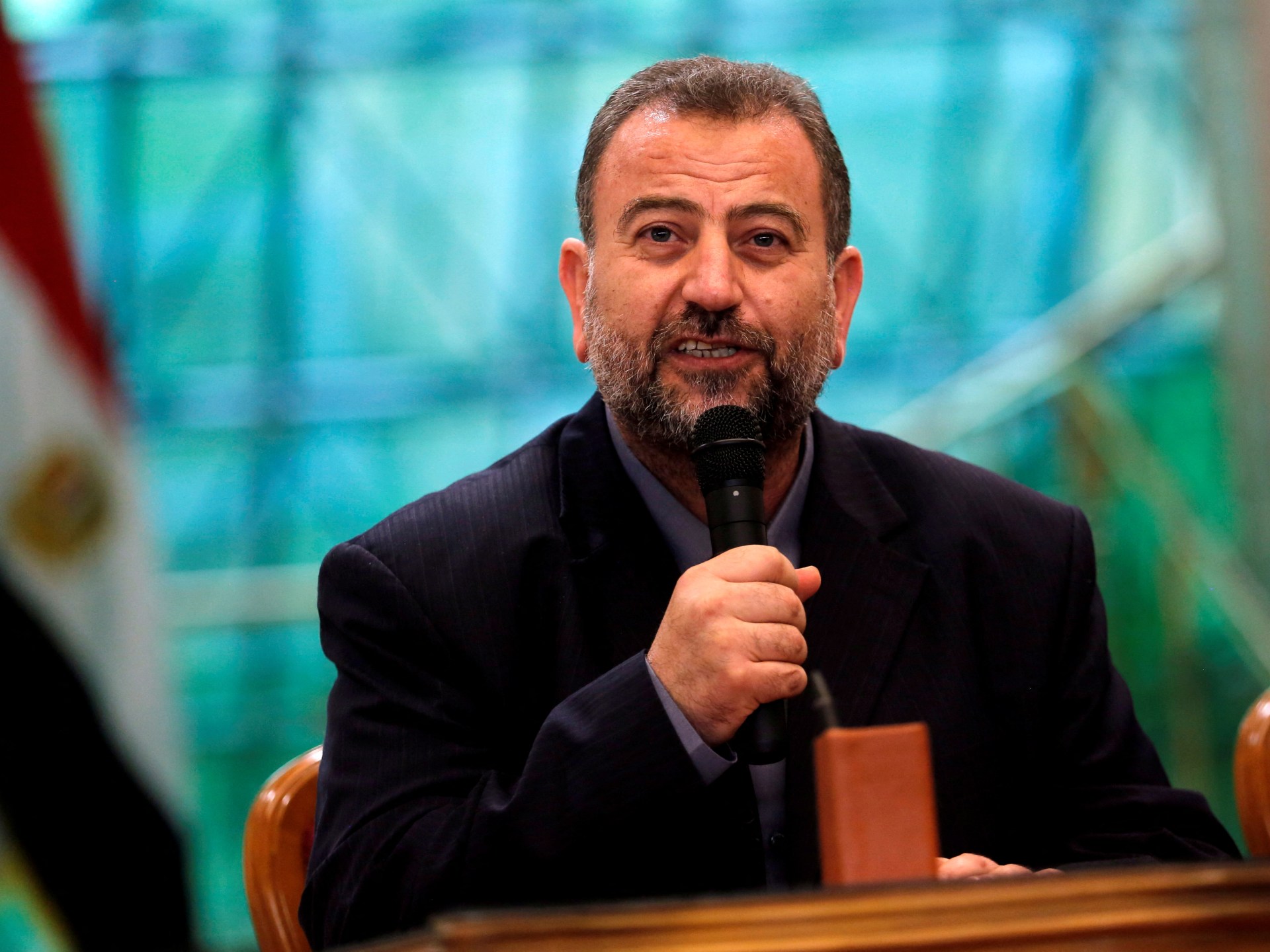 Image source, Reuters
Image source, Reuters
Wolfgang Schäuble was finance minister under Angela Merkel for eight years
German ex-finance minister Wolfgang Schäuble, who helped steer the eurozone through the debt crisis, has died at the age of 81.
An MP for 51 years in Germany's Bundestag, he played a key role in negotiating German reunification after the fall of the Berlin Wall in 1989.
He then survived an attempt on his life by a mentally unstable gunman.
And although never chancellor, Schäuble was widely viewed as one of Germany's most influential post-war politicians.
Current Chancellor Olaf Scholz said he had shaped his country for more than half a century and Germany had lost "a sharp thinker, a passionate politician and a pugnacious Democrat".
Posting on X, formerly Twitter, Former UK Chancellor George Osborne praised Schäuble as "a great man, who had unified his country and was the last of the post-war Germans".
For many Greeks, however, he was a hate figure during the eurozone debt crisis, as architect of a highly unpopular austerity programme imposed on their country. Former finance minister Yanis Varoufakis said history would "judge him harshly".
Wolfgang Schäuble joined the conservative CDU party in 1965 and entered the Bundestag seven years later when he was 30.
As interior minister of West Germany, he co-signed the treaty in East Berlin that unified the country in August 1990. He later called reunification "the high point of my political life".
Nine days after Germany was formally reunited, he was shot in the spinal cord and jaw during an election campaign event and used a wheelchair for the rest of his life.
He returned to the public stage months later with an impassioned call for the reunified country's capital to be moved from Bonn to Berlin.
Image source, Reuters
Image caption,Wolfgang Schäuble (L) signed Germany's reunification treaty on 31 August 1990 weeks before he was shot in the spine
He went on to lead the CDU in 1998, until Angela Merkel took over in 2000 in the middle of a party donations scandal.
On becoming Germany's chancellor in 2005, she appointed him first as interior minister then later as finance minister, where he spent eight years focused on balancing the German budget.
He achieved Germany's so-called schwarze Null or black zero budget deficit in 2014 and he was widely viewed as the driving force behind the austerity policies adopted by the eurozone in response to the debt crisis that began in 2008.
"Greece's debt crisis and the crises it generated offer a clear warning to European policymakers not to allow public debt to pile up indefinitely," he told the European Parliament in 2011.
His no-nonsense approach to the eurozone crisis led him to proposing a Greek "time-out" from the euro, although that was rejected by Athens.
As Greece took on three international bail-out loans, taxes rose, salaries and pensions were slashed and unemployment soared.
Leaving government in 2017, Schäuble became president of the Bundestag. He was its longest-serving MP, winning 14 constituency elections.
In a speech to the European Parliament four years ago, Wolfgang Schäuble said that without European unification, east and west, there would have been no German reunification, and he warned that the "rules-based international order was under pressure".
He withdrew from frontline politics only last year.
German Finance Minister Wolfgang Schaeuble on Germany's reunification

 Movie
Movie 4 months ago
77
4 months ago
77 






![Presidents Day Weekend Car Sales [2021 Edition] Presidents Day Weekend Car Sales [2021 Edition]](https://www.findthebestcarprice.com/wp-content/uploads/Presidents-Day-Weekend-car-sales.jpg)



 English (United States)
English (United States)